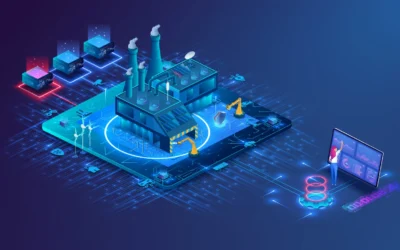MIT Technology Review’s curated 2025 list spotlights ten companies at the forefront of transforming climate solutions, with an increased emphasis on addressing AI’s energy demands and building resilient, sustainable technologies amid shifting market dynamics.
MIT Technology Review has unveiled its 2025 list of 10 Climate Tech Companies to Watch, identifying businesses that are making notable advances in the fight against climate change. According to the announcement, the selection process involved nominations gathered from a broad spectrum of experts, including academics, investors, and industry specialists, who rigorously debated each candidate before narrowing the field. The companies featured were chosen based on their potential to reduce greenhouse gas emissions, enhance resilience in the face of climate challenges, and demonstrate durability amid shifting policy and market landscapes.
The 2025 list, now in its third year, reflects a more focused selection compared to previous years, with the number of honourees reduced from 15 to 10. This adjustment aligns with the changing dynamics in climate science and technology, where evolving policy and market conditions have altered the priorities in selecting companies positioned to make a significant impact. The chosen companies span a wide range of sectors, including energy, transportation, and food production, and are recognised for innovations such as generating cleaner energy sources and redesigning food systems for sustainability.
A significant theme this year is the response to the rising energy demands of artificial intelligence technologies. Several companies on the list—such as geothermal energy firm Fervo Energy, nuclear power startup Kairos Power, and Redwood Materials, which is expanding into microgrid development—are noted for creating carbon-free solutions that address this challenge. This emphasis points to a growing recognition within the climate tech sphere of the need to balance technological advances in AI with sustainable energy practices. Bill Gates, contributing an essay accompanying the list, underscores this necessity by stating that innovation must accelerate across multiple fronts if net-zero emissions are to be achieved.
While MIT Technology Review’s list is lauded for highlighting emerging and established firms contributing to climate resilience, broader industry observations suggest that the climate tech sector remains highly competitive and fluid. Earlier lists showcased a wider array of companies, including notable names such as Gogoro, a company specialising in battery swapping ecosystems for electric scooters, which has been recognised for contributing to urban mobility and grid stability. However, this year’s list places greater emphasis on energy innovation and scaling solutions that can withstand volatile regulatory and market shifts.
The publication positions itself as a leading source providing credible insights into emerging technology trends at a global scale. Yet, some critics caution that lists like these, while helpful in spotlighting innovation, may not fully capture the vast ecosystem of climate tech solutions, especially those from smaller or less well-funded startups that could potentially offer disruptive advancements.
In summary, MIT Technology Review’s 2025 climate tech list highlights a selective group of companies seen as poised to influence the landscape of emissions reduction and sustainability amid rapid technological and environmental change. The focus on tackling AI’s energy footprint alongside renewable and resilient technologies underscores the complex and interconnected challenges the climate tech sector faces going forward.




